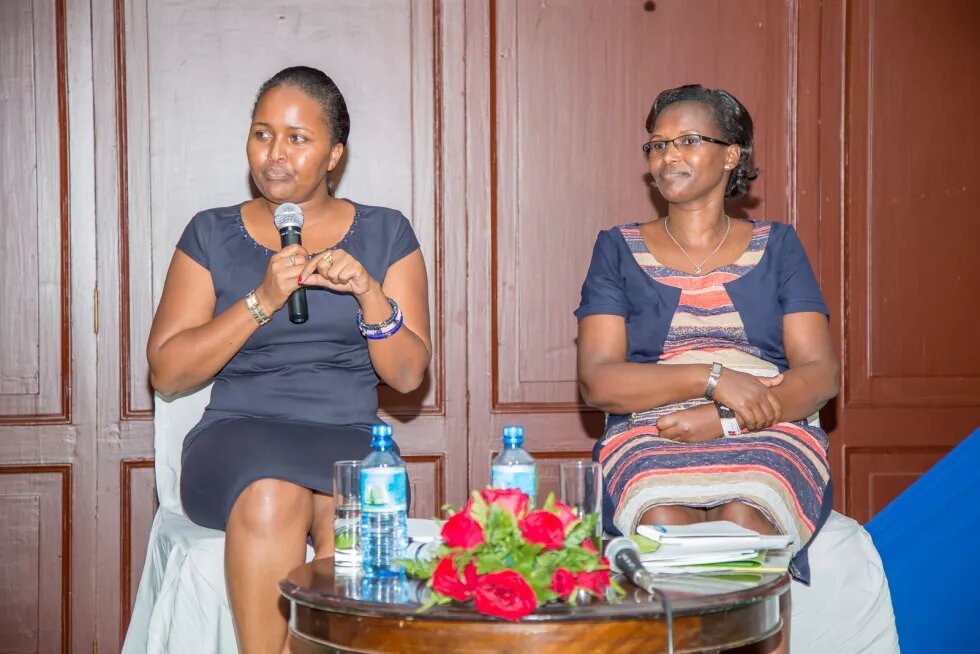
The World Health Organisation (WHO) estimates that approximately 125 million girls and women alive today had been subjected to Female Genital Mutilation (FGM) in 29 countries, mainly in Africa and the Middle East where FGM is prevalent. On the 26th of February 2015, Heinrich Boell Foundation’s Nairobi office once again convened the monthly Gender Forum at the Nairobi Safari Club, with the agenda of addressing FGM in Kenya. In a highly emotional ambience, people from different backgrounds in Kenya came together to discuss FGM in Kenya and what can be done to fight the vice. On February 6th 2015, the annual International Day of Zero Tolerance for Female Genital Mutilation was commemorated with Anti-FGM crusaders at community and national level leading the discussions. They were accompanied by female legislators from Samburu and Isiolo Counties, which are some of the most affected counties in Kenya. The panel comprised Dr Linah Jebii Kilimo, Chairperson, Anti-Female Genital Mutilation Board; Senator Naisula Lesuuda; Samburu County Senator and Founder of Naisula Lesuuda Peace Initiative; Tiyah Galgalo, County Woman Member of National Assembly from Isiolo County; a sexual medicine expert Dr Tammary Esho, Africa Coordinating Centre for the Abandonment of FGM (ACCAF, University of Nairobi); and Ms Veronica Lekopole, Centre for Advocacy and Gender Equity in Samburu County. FGM is today discussed at international and national forums as a violation of human rights and as inimical to female reproductive health. Yet, to a considerable number of people in countries where FGM is practiced, the argument for its continuation is that the practice is a traditional cultural rite of passage. It passes off young girls into adulthood and others into marriage when they are psychologically and physically not ready for it. In their quest to find what more can be done to fight the vice and ultimately end it, the public forum participants and panellists explored the cultural and socio-political barriers, the effectiveness of the legal framework and new directions in the fight against FGM. Cultural and socio-political barriers A majority of Kenyans will agree that female circumcision is no longer a necessity, that it greatly affects the status and development of girls and women, and that it is not only a reproductive health and human rights abuse, but a challenge as well. However, some communities are not ready to abandon the practice, arguing that it is still a cultural practice that bestows pride to families and the community. This translates to FGM narratives being attached to heritage, which renders these narratives and practices unable to address the individual’s rights and health. Senator Lesuuda lamented “It breaks my heart when I go to those practicing FGM, as a ceremony….but how do we explain to the community that you can be a woman without removing any part of the body?” Culturally, an uncircumcised girl fetches a lower bride price. In all the communities where the practice persists, bride price is deeply entrenched and a girl who refuses to be circumcised is a threat to the would-be wealth her father expects on her marriage. Girls are sometimes ostracised by their parents for refusing to be circumcised, others receive all manner of insults and stigmatization directed at them. This is a reality that political leaders have failed to address as admitted by Dr Tammary Esho “it is very discouraging to campaign against FGM in a community that does not demonstrate political will of the community leaders” Legal Framework Parliament has a long way to completing its legislative work on among very many others, this very significant issue. Following alarming statistics of the continued practice in various parts of Kenya, The Prohibition of Female Genital Mutilation (FGM) Act 2011 is only a first step of a long journey, even as political leadership to engage with communities on this harmful culture is lacking. Now that the Prohibition of FGM Act 2011 is in place, the next hurdle is the government’s mobilisation of resources and commitment to operationalise the Act for Kenya to see the end of FGM, a centuries old practice so deeply rooted in African culture. While expressing the need for law makers to own the campaign against FGM, Dr Kilimo affirmed “leaders walk a tight rope between norms of the community and progressive work and they would rather keep quite than endorse the campaign.” Alternative Rite of Passage and the way forward An Alternative Rite of Passage (ARP) would be to allow the community and the girls to go through all the steps except the actual operation. In addition, communities could use the season to impart sexual and reproductive health education to the girls while the 'godmothers' are taught how their bodies work, about relationships, responsible sexual behaviour, and conception. ARPs cannot be introduced and successfully integrated without collective involvement that cut across the communities. A representative from Isiolo Gender Watch reiterated “FGM is a culture that evolves and it is deeply rooted, that is why it is time to involve the gatekeepers...men” How will we win the battle against FGM? Although not all areas have accepted the alternative rite of passage, the changes are significant and encouraging. Female circumcision has never been a subject people talked about, but villagers who have undergone educational programs must openly discuss and make the issue a public debate. Role models must publicly declare their opposition to female circumcision, while health workers should discuss its negative effects with patients at public meetings and discourage the use of connotative terms that stigmatize uncircumcised girls. Such terms include being termed “child-like” or “Irogo” among the kikuyu, who have so far abandoned the vice and “Ikino” among the Borana. All these efforts could be short changed if they do not involve everyone as noted by Dr Jebii Kilimo “communities need to create a better identity than defining womanhood in FGM terms, it’s a national war.”